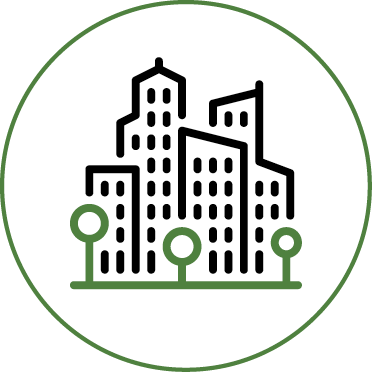- Johns Hopkins Berman Institute of Bioethics
- Research & Outreach
- Projects
- Ethics Guidance for the Public Health Containment of Serious Infectious Disease Outbreaks in Low Income Settings: Lessons from Ebola
- Guidance Document
Ethics Guidance for the Public Health
Containment of Serious Infectious
Disease Outbreaks in Low Income
Settings: Lessons from Ebola
In public health and in ethics, context matters.
This site presents an overview of an ethics guidance guidance document for public health professionals to use in infectious disease outbreak response.
Regardless of geography, infectious disease outbreak response strategies should be effective, fair, respectful and transparent.
Click the arrows to the right to explore each chapter of the document. You can download the entire document at anytime.
Download the Guidance Document (PDF)
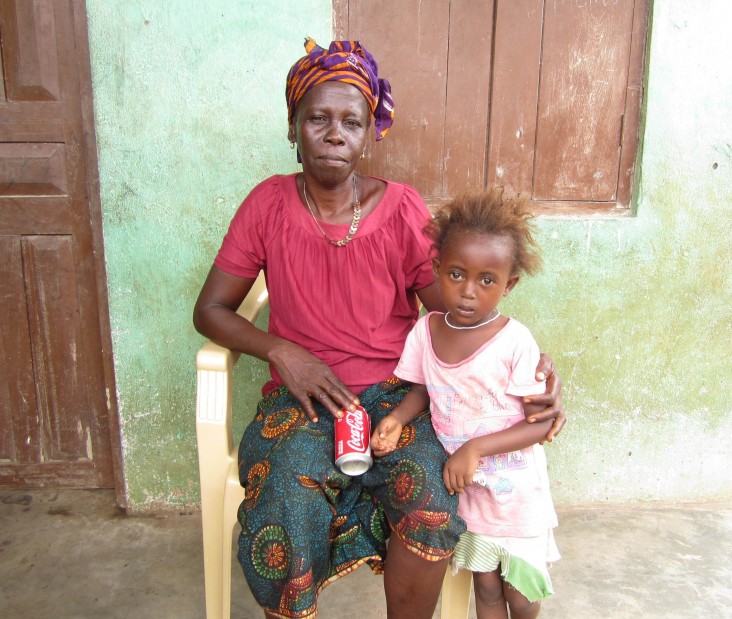
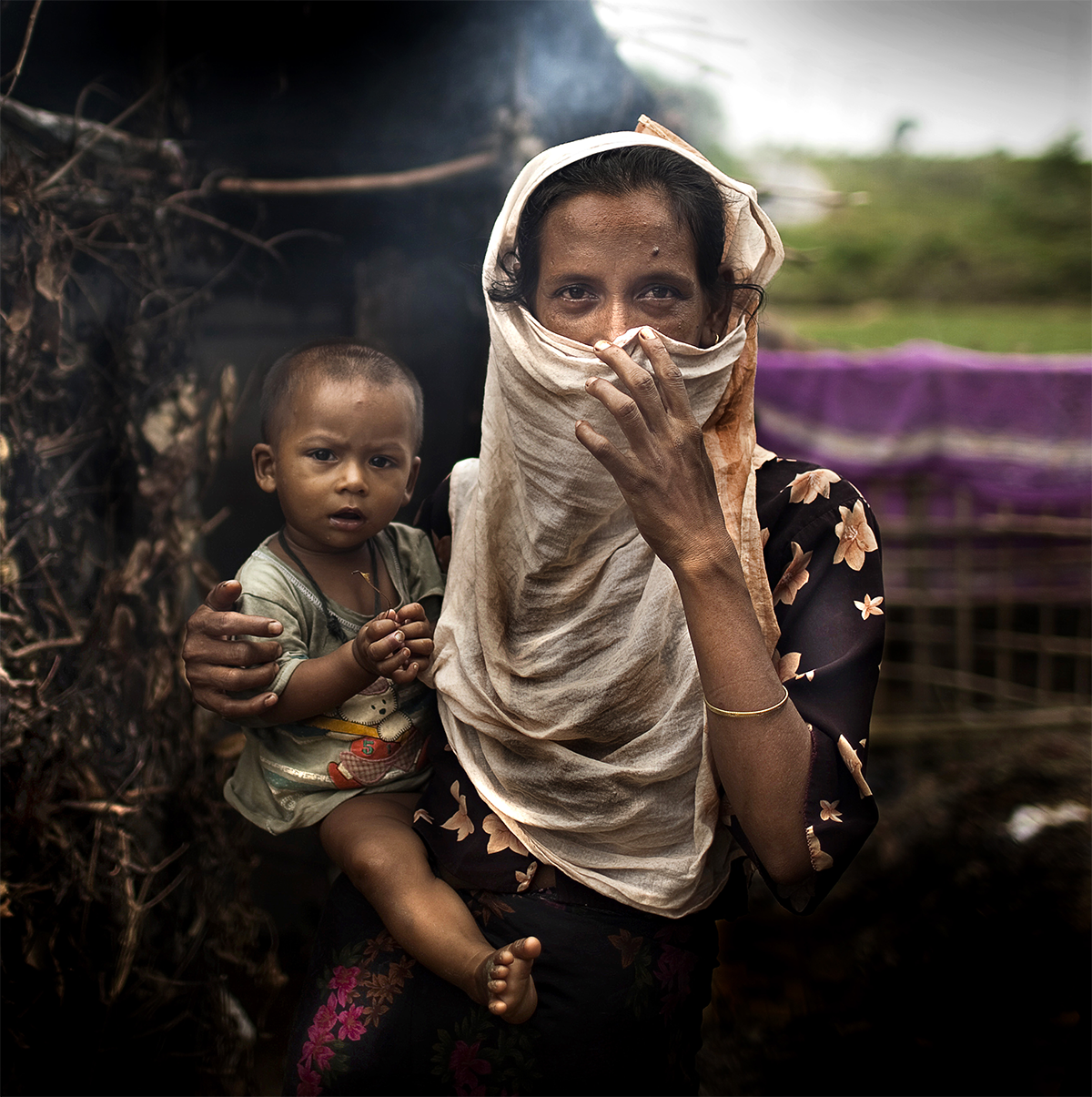
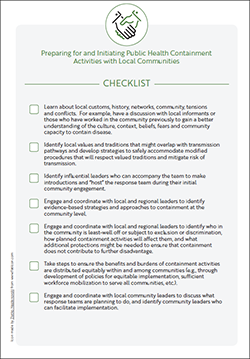
Preparing for and Initiating
Public Health Containment Activities
with Local Communities
HOW DO YOU IDENTIFY LOCAL LEADERS?
Conducting outreach activities such as surveillance, clinical care, and contact-tracing, is key to preventing new infections and minimizing death and disability caused by an outbreak. Yet as previous experiences have shown, how frontline workers conduct this work can be as important as what they do. Frontline workers should approach local communities respectfully, as partners in response. A response driven by the needs and demands of the community will pay off in terms of local acceptance, time, and trust. This checklist is designed to help responders act with respect, compassion, and fairness when entering at-risk and affected communities.
Download the Chapter One Checklist
Interacting with Local Communities During Public Health Containment Activities
HOW FRONTLINE WORKERS ENHANCE COOPERATION
Workers involved in health education, surveillance, case-finding, contact-tracing, ambulance driving, and other community health measures become the face of an outbreak response to affected communities. Through interactions with community members, these frontline responders can influence people’s perception of the overall response. This checklist is designed to help managers think through ways to enhance cooperation by bringing considerations of respect, transparency, and fairness to the fore. Integrating these considerations into technical aspects of containment helps contain the outbreak.
Download the Chapter Two Checklist
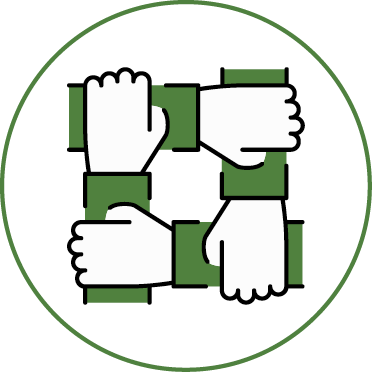
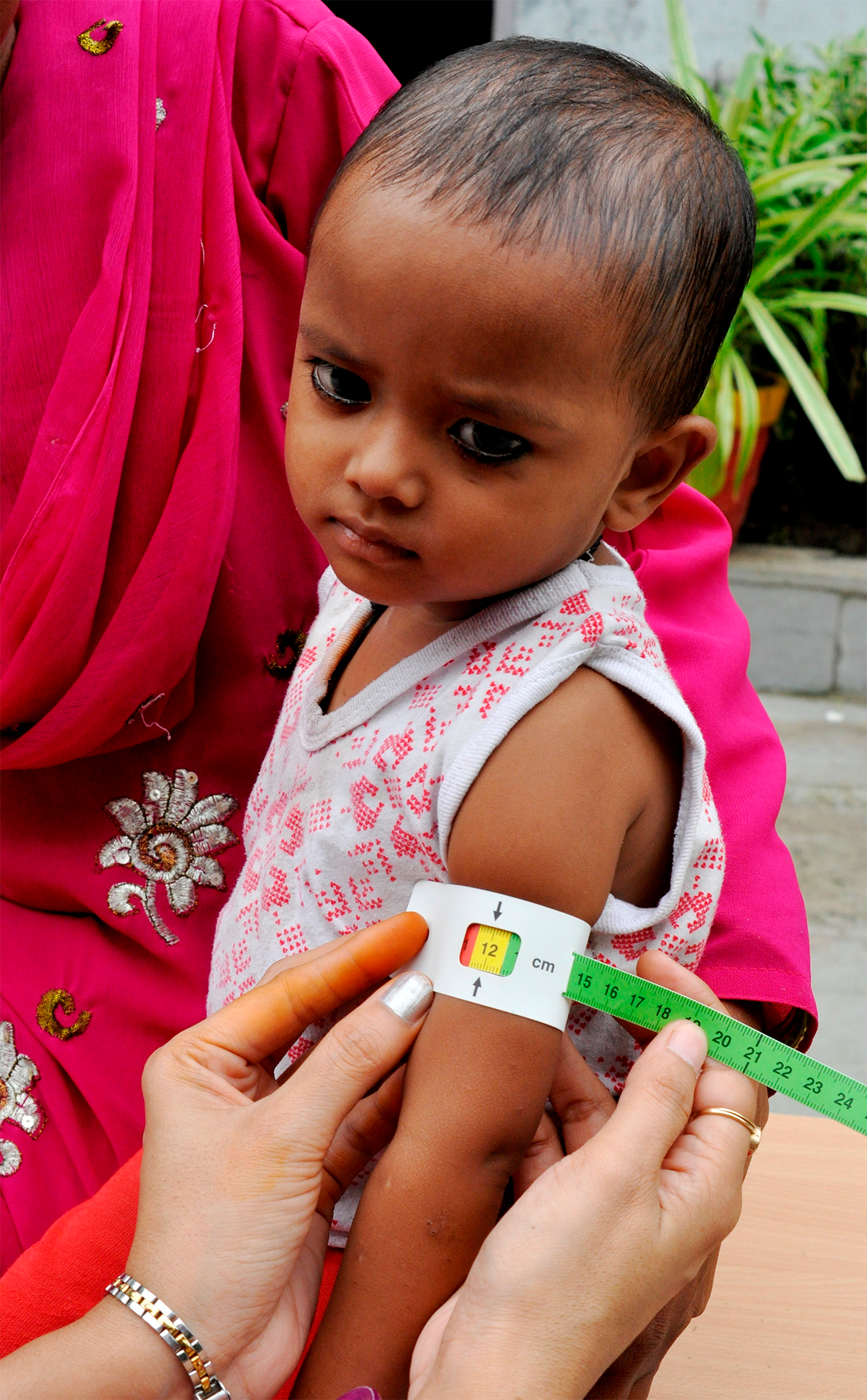
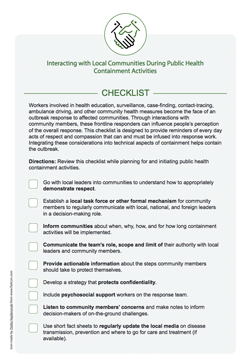
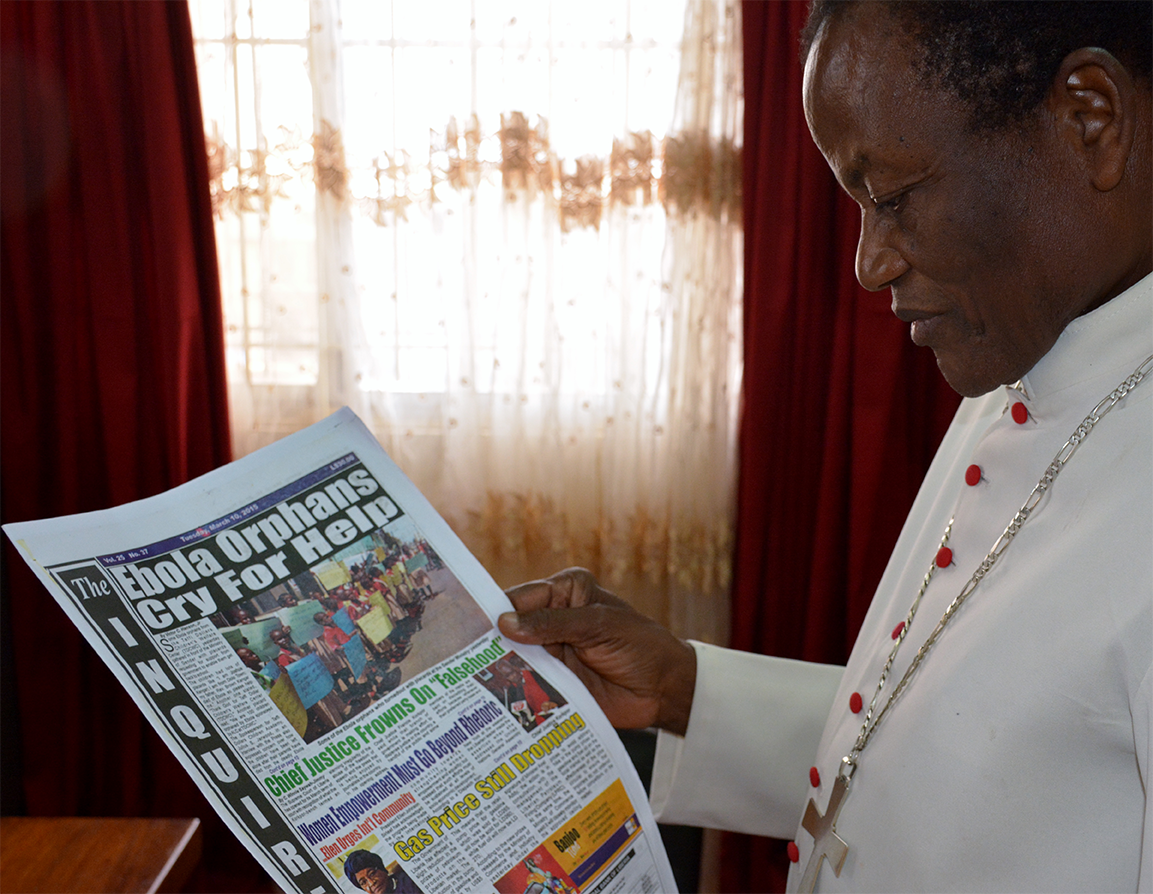
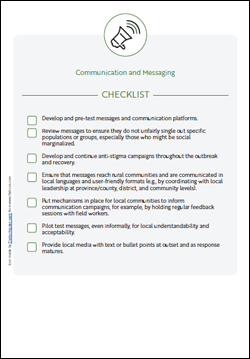
Communication and Messaging
KEY CONSIDERATIONS FOR PLANNING CAMPAIGNS
Communication campaigns are critical to outbreak containment: they can encourage adoption of health-seeking behavior and infection prevention and control practices and keep the public informed of new information as it becomes available.
Establishing a trustworthy dialogue with the public can help ensure that individuals will receive and act on messages.
This checklist presents key considerations for planning and implementing communication campaigns and messaging in these contexts.
Download the Chapter Three Checklist
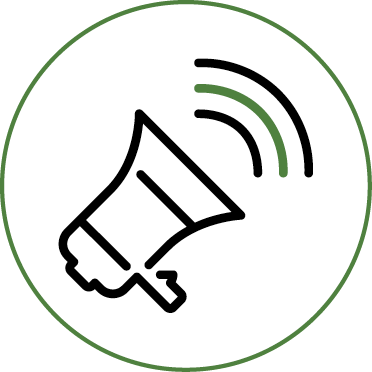
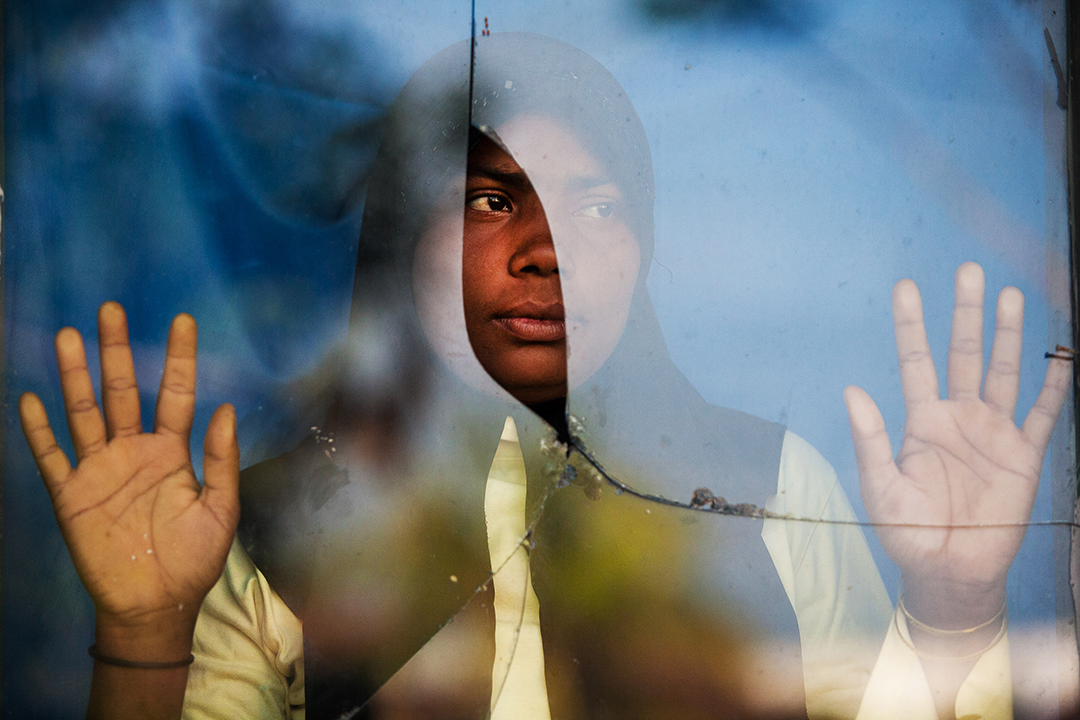
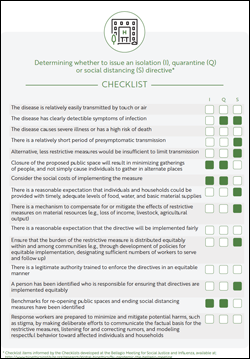
Special Considerations for Isolation,
Quarantine and Social Distancing
HOW AND WHY TO USE THESE MEASURES
Isolation, quarantine, and social distancing are public health containment measures designed to reduce the spread of highly infectious diseases. These checklists are designed to help emergency responders think through from an ethics framework how and why they should use these measures, and in what circumstances. Isolation refers to separating people infected with a contagious disease from uninfected populations. Quarantine refers to separating and restricting the movement of those who may have been exposed to a contagious disease but are not known to be sick. Social and personal distancing refers to community-level efforts to restrict when and where people gather, and establish a minimum distance between individuals. Examples include closing schools, shortening market days, or postponing church events or planned festivals.
Download the Chapter Four Checklist
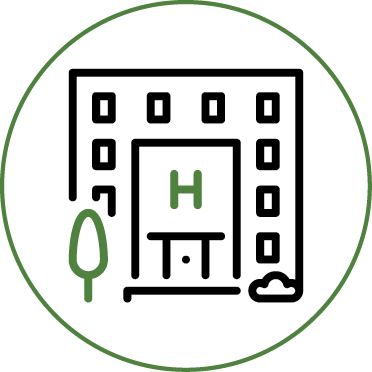
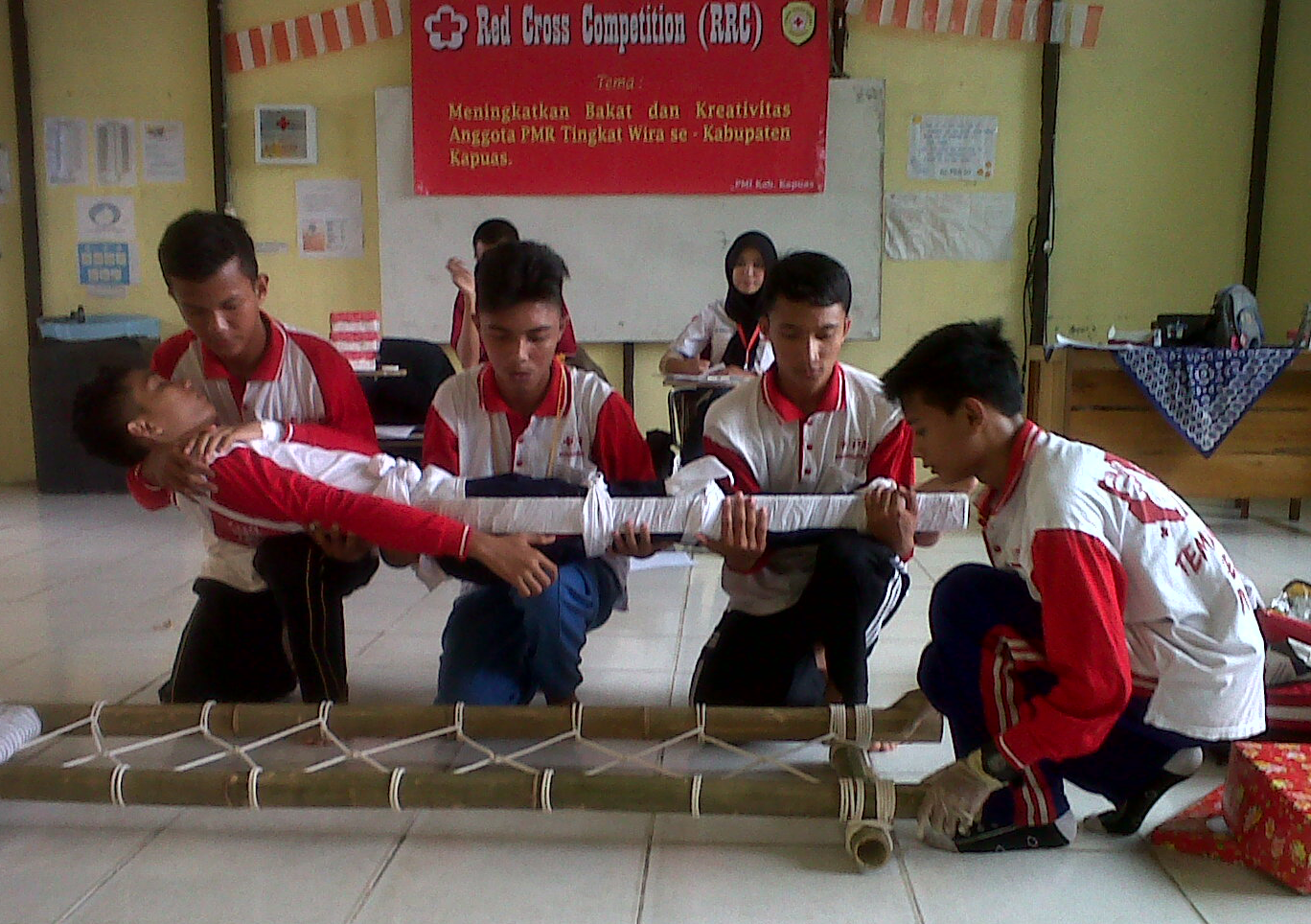
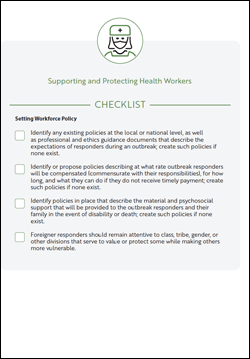
Supporting and Protecting Health
Workers
PROTECTING YOURSELF AND YOUR TEAM
Ensuring a capable workforce is key to preventing new infections, minimizing death and disability, and addressing other health concerns during an outbreak. Central workforce ethics concerns include appropriate risk levels to undertake, fair compensation, and rights of healthcare workers (HCWs).
The ethical tension is heightened where resources are severely limited and health systems lack basic protective equipment. This checklist offers considerations related to infection prevention and control practices that include sufficient personal protective equipment (PPE) and logistics help.
Download the Chapter Five Checklist
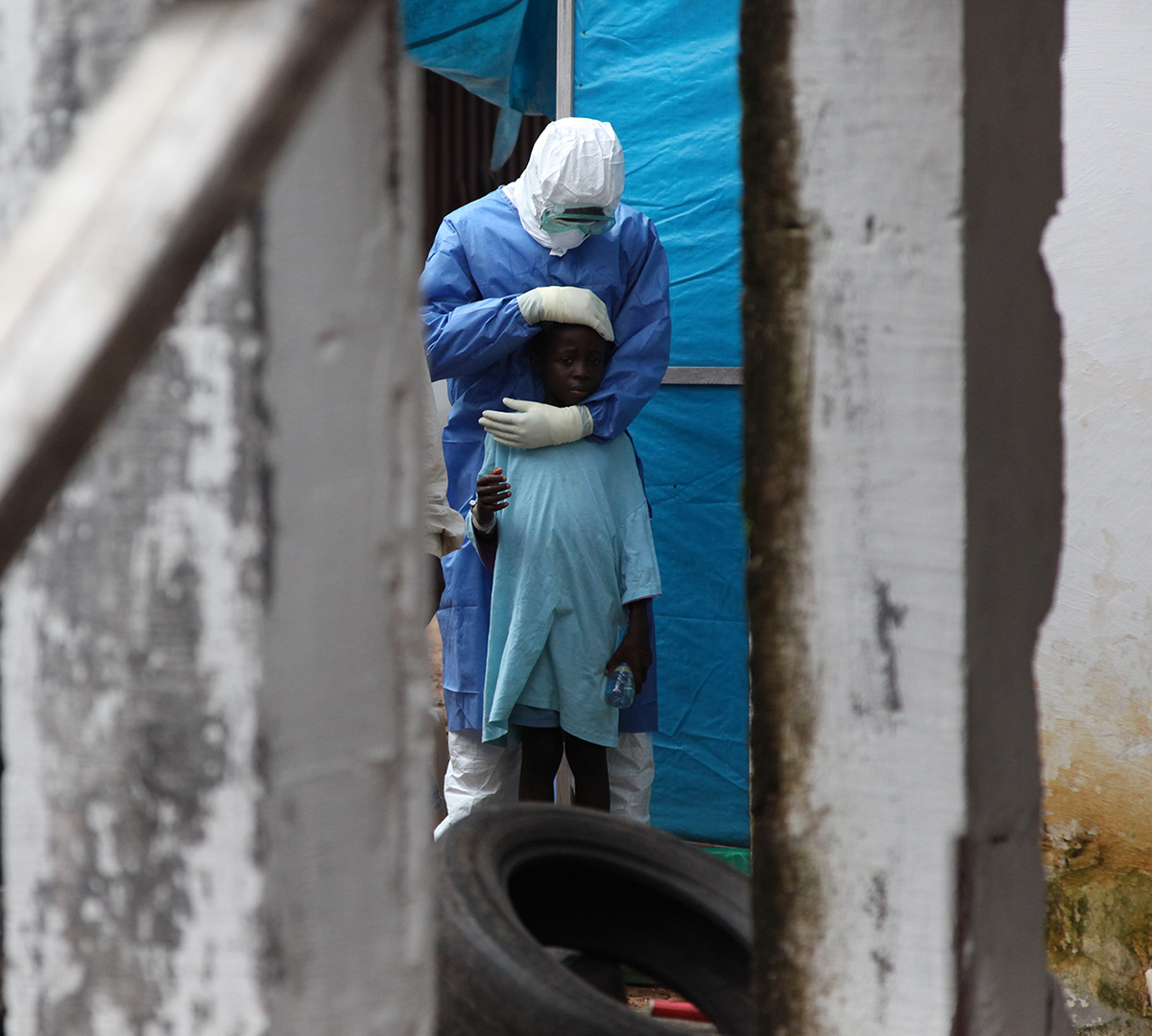
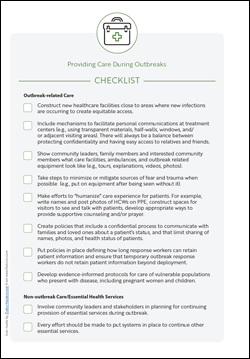
Providing Care During Outbreak
PROVIDING CARE WITH RESPECT
Providing care and treatment not only brings relief to those who are sick, but also halts potential pathways of transmission and is ethically required. Care and treatment must be provided in ways that make care-seeking a desirable option for those in need; that is, their provision must be accessible to those affected, the interventions provided must be evidence-based, and approaches to care must ensure that patients and their families are addressed respectfully.
Download the Chapter Six Checklist
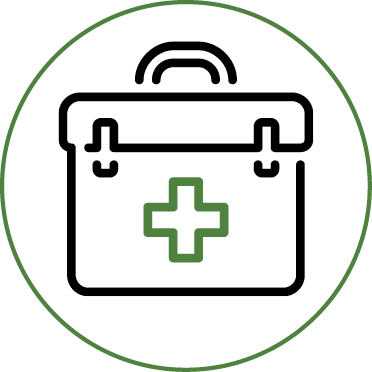
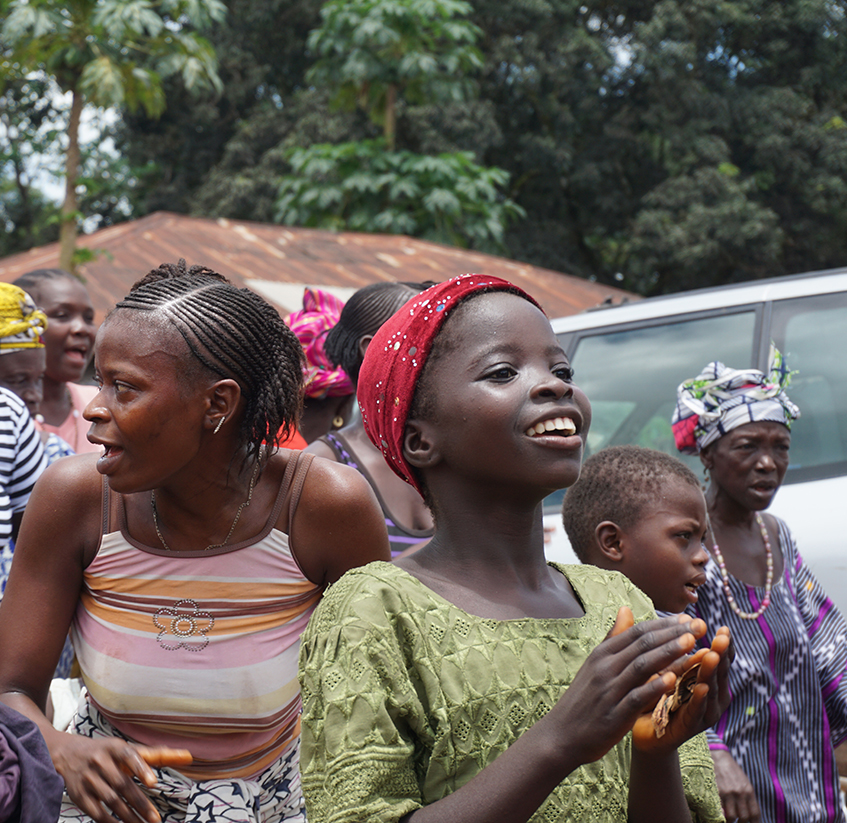
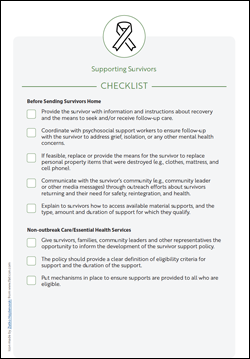
Supporting Survivors
WHAT TO DO IN THE SHORT- AND LONG-TERM
Survivors of infectious diseases and people who develop chronic illnesses from an outbreak often experience significant disadvantage. Survivors might experience clinical sequelae, as has been documented for Ebola, Lassa fever, and polio, requiring ongoing clinical care and potential psychosocial stress or stigma. Physical and/or mental complications can contribute to an inability to work, or to sustain relationships or previous life activities. Stigma toward survivors might result in employment discrimination and loss of housing. This checklist addresses both short-term and longer-term considerations for survivors, including facilitating reintegration of survivors into their communities.
Download the Chapter Seven Checklist
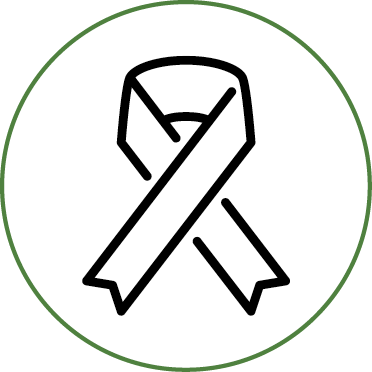
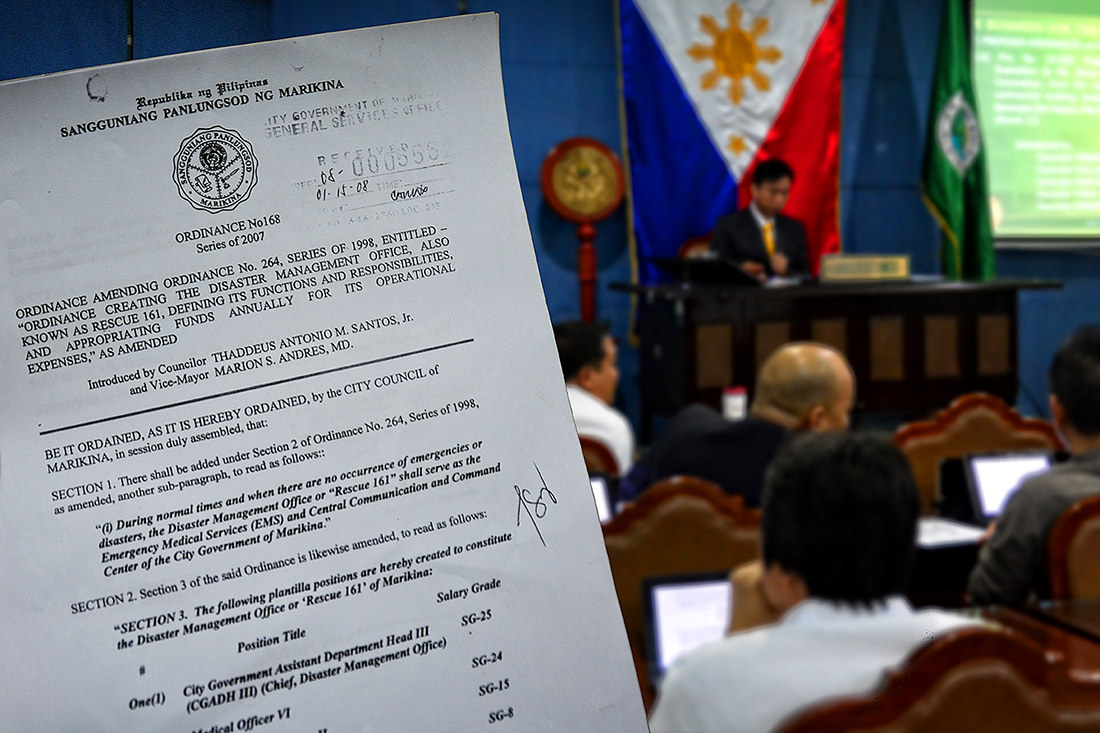
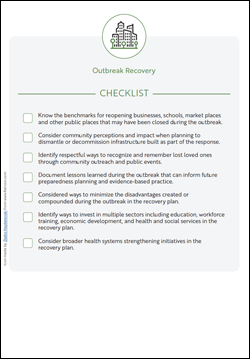
Outbreak Recovery
CONSIDERATIONS POST-OUTBREAK
The larger the outbreak and the more lethal the disease, the more profound its impact. Recovery is a lengthy process, with multiple stages over many years. Long-term recovery is best characterized as preparedness through systems strengthening and policy change. This checklist highlights some ethics considerations for the transition from active outbreak containment to robust outbreak recovery.
Download the Chapter Eight Checklist
